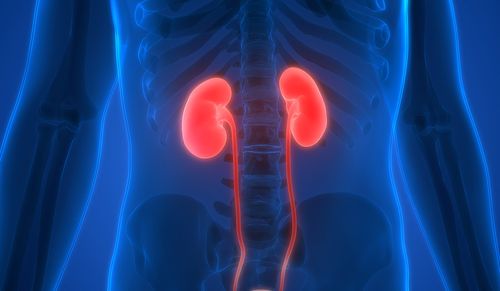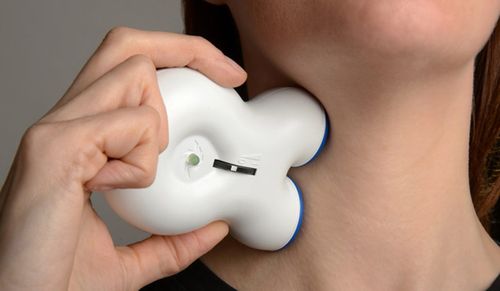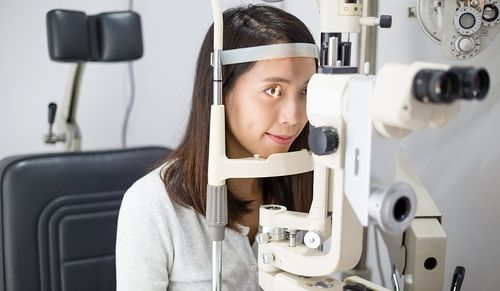Running for an hour can add seven hours to your life!
According to a study published in the journal Progress in Cardiovascular Disease, people who run tend to live about three years longer than non-runners. They also have a 25 to 40 per cent reduced risk of premature mortality.
The study analysed data on 55,000 people over 15 years to compare the health benefits of running with other forms of exercise such as walking and biking. Although exercise in general improved lifespan, none of the other forms had a similar impact on life expectancy.
About four hours of running per week was ideal. Beyond that, there were no further improvements in life expectancy.
People who run usually follow other healthy lifestyle behaviours like maintaining a healthy weight, not smoking and drinking only moderately, which could also be adding to their life expectancy. Running can improve aerobic fitness and combat many of the common risk factors for early death, including high blood pressure and abdominal fat.

Kidney watch
Kidney disease can cause cardiovascular health problems, increasing the risks of congestive heart failure, heart attacks and strokes, according to a US study published in the Journal of the American Society of Nephrology.
To analyse the impact of chronic kidney disease on cardiovascular health, the researchers looked at the prevalence of reduced kidney function for 188 countries at six time points from 1990 to 2013 as part of the Global Burden of Disease Study. Reduced kidney function was associated with 4 per cent of deaths worldwide, or 2.2 million deaths in 2013.
More than half of these deaths (1.2 million) were attributed to cardiovascular causes, while 0.96 million deaths were caused by kidney failure.
When it comes to risk factors for heart disease, reduced kidney function ranked below high blood pressure, high body mass index, and high blood sugar, but was on par with high cholesterol as a risk factor for disability-adjusted life years (the number of years lost due to ill-health, disability, or early death) in both developed and developing countries.
“The findings provide insight on the true impact of kidney disease on societies and underscore the importance of screening for kidney disease and treatment to decrease these deaths. This is especially important within the developing world, where the death rate has increased since 1990," the study author cautioned.

New treatment
The US Food and Drug Administration has approved a non-invasive, handheld device for the treatment of cluster headaches, extremely severe headaches that can be debilitating.
GammaCore works by stimulating the vagus nerve. It transmits a mild electrical stimulation to the vagus nerve through the skin. It is applied at the neck during a headache and the device can be used as often as the patient wants.
The FDA approval was based on two clinical trials. In the first trial, 34 per cent of the 85 participants with cluster headaches who used the device reported pain reduction after treatment against 11 per cent of the placebo group. In the second trial, 47.5 per cent of those treated with the device were pain-free 15 minutes later against 6.2 per cent of those on the placebo.
GammaCore is manufactured by ElectroCore and is already approved for use in many countries, including India.
The vagus nerve stimulation device should not be used by patients with active implantable medical device, such as hearing aid implant or pacemaker; patients who have a metallic device such as a stent, bone plate, or bone screw implanted at or near the neck; patients with hypotension, hypertension, tachycardia, or bradycardia; patients diagnosed with narrowing of the arteries (carotid atherosclerosis); as well as children and pregnant women.

Salt makes you hungry...
...not thirsty as is widely believed, according to a study carried out during a simulated mission to Mars by an international group of scientists and published in The Journal of Clinical Investigation.
The study was based on two separate groups of 10 male volunteers who were sealed into a mock spaceship for two simulated flights to Mars—one group for 105 days, the other for 205. The volunteers had identical diets except for their salt intake. They were given three different levels of salt in their food.
A salty diet actually caused the participants to drink less water. Salt triggered a mechanism in the kidneys to conserve water, making the participants less thirsty.
But the men reported feeling more hungry when their salt levels were higher, even though their calorie intake was the same.
“This may be because it takes extra energy for the body to conserve water. I do think that if we’d offered the cosmonauts more food, they would have overeaten and gained weight,” said the study’s senior author.
Did You Know
Active commuting can save your life. A study involving more than 2 lakh people linked cycling to work to a 45 per cent lower risk of developing cancer, a 46 per cent lower risk of heart disease and a 41 per cent lower risk of premature death compared to using a car or public transport. Walking to work was linked to a 27 per cent lower risk of developing heart disease and a 36 per cent lower risk of dying from it.
The BMJ

Not for kids
The US Food and Drug Administration is asking parents to not give their children any medications containing the narcotics codeine and tramadol because they can cause life-threatening breathing problems.
Both codeine and tramadol are opioids. Codeine is often combined with acetaminophen in cough syrups and pain medicines. Tramadol is a pain medication.
According to the FDA, these medicines carry serious risks, including slowed or difficult breathing, and death. The risk is greater in children younger than 12. These medications should not be taken by breastfeeding mothers either. It can cause serious adverse reactions, including excess sleepiness, difficulty breastfeeding, or serious breathing problems that could result in death.
Adolescents aged 12 to 18 should also avoid these medications, especially if they are obese or have conditions such as obstructive sleep apnoea or severe lung disease, which can increase the risk of serious breathing problems.
Parents should read the ingredient labels on pain and cough medicines to make sure they don't contain codeine or tramadol. The warnings follow 64 reported cases of serious breathing problems, including 24 deaths, with codeine-containing medicines in children younger than 18 years.
Did You Know
Five life skills—emotional stability, determination, control, optimism and conscientiousness—is key to success in life. People who have more of these life skills enjoy greater financial stability, less depression, low social isolation, closer relationships, better health and fewer chronic diseases.
Proceedings of the National Academy of Sciences

Look in the eye
People with type 1 diabetes are at an increased risk of developing diabetic retinopathy, a disease that can cause blindness.
Annual eye exams are recommended to catch the disease before it causes irreversible damage. But how often should you see your doctor? According to a study published in the New England Journal of Medicine, the frequency of screening should be based on an individual's level of risk for the eye disease.
The researchers tracked the vision, advanced retinopathy status and general diabetes history of about 1,400 people with type 1 diabetes, aged 13 to 39, for nearly 29 years.
The conclusion? Those with good blood sugar levels and no signs of retinopathy need to have their eyes screened only every four years. Similar people with mild retinopathy should be screened once every three years.
But those with severe or moderate retinopathy should have their eyes checked every three to six months, respectively. People with higher blood sugar levels should also undergo more frequent screening.
“Our model for establishing an individualised schedule for retinopathy screening on the basis of the patient’s current state of retinopathy and glycated haemoglobin level reduced the frequency of eye examinations without delaying the diagnosis of clinically significant disease,” the study concluded.
Did You Know
People who consume at least one artificially sweetened drink like diet soda a day are three times more likely to develop ischemic stroke and dementia.
Stroke
Safety checklist
Surgical checklists can save lives.
There was a 22 per cent drop in post-surgical deaths in 14 hospitals in South Carolina in the US that participated in a voluntary, statewide programme to implement the World Health Organization’s 19 point Surgical Safety Checklist. A pilot study conducted in eight hospitals in different countries including India in 2008 showed that the WHO checklist reduced the rate of deaths and surgical complications by more than a third.
Post-surgery death rates fell from 3.38 per cent prior to implementation in 2010, to 2.84 per cent after implementation in 2013. However, there was no reduction in post-surgery death rates in the other 44 South Carolina hospitals that did not participate in the programme (3.50 per cent in 2010 and 3.71 per cent in 2013). The study published in the Annals of Surgery is the first to show a large-scale impact of the checklist on the general population.
According to WHO estimates, over 7 million people worldwide will suffer complications following surgery. One million of these people will die as a result. However, nearly half of these complications are potentially preventable. The checklist aims to create a culture of communication in the operating room that improves overall surgical care and safety. It can potentially save thousands of lives.
The checklist aims to perform specific safety checks during three vital phases of surgery: before the administration of anaesthesia; before the incision; and before the patient leaves the operating room. A checklist coordinator makes sure that the surgical team has completed the tasks of each phase before moving on to the next.

Steps to motivation
Next time you feel tired and lethargic, don’t reach for a cup of coffee. Instead, go up and down the stairs.
Study participants felt more energised and motivated after walking up and down the stairs at a regular pace for ten minutes than after consuming 50 milligrams of caffeine.
The researchers focused on a typical office setting, where employees spend hours sitting and looking at computer screens.
The findings published in the journal Physiology and Behavior was based on 18 college students who were chronically sleep deprived—getting less than 6½ hours per night.
The participants took some verbal and computer-based tests that sought to assess their cognitive skills and mood after both scenarios. They took the tests either after taking capsules that contained caffeine or a placebo, or after spending 10 minutes walking up and down stairs at a low-intensity pace. While neither caffeine nor exercise caused large improvements in attention or memory, the participants were more motivated and energised after stair walking.
"Office workers can go outside and walk, but weather can be less than ideal. It has never rained on me while walking the stairs. And a lot of people working in office buildings have access to stairs, so it's an option to keep some fitness while taking a short break from work," the study author noted.
Use with care
All that smartphone usage might be playing havoc with your neck, shoulders and back.
According to a study published in The Spine Journal, poor posture during use of smartphones is causing an epidemic of 'text neck', severe pain or soreness around the shoulders, neck and upper back. More and more children and young adults are reporting disc hernias and spine alignment problems.
The study authors suggest simple lifestyle changes to avoid text neck. Hold your cell phones at eye level while texting. Use both hands and both thumbs to create a more symmetrical and comfortable position for the spine.
When working on computers or tablets, make sure the monitor stand sits at a natural horizontal eye level. Take frequent breaks and do physical exercise that strengthens the neck and shoulder muscles.
Did You Know
Frequent hot flashes in younger women (40-53 years) may also signal a poorer blood vessel function that can lead to heart disease.
Menopause

Touch screen trouble
Toddlers who use touchscreen devices like smartphones and tablets may sleep less than those who do not. More screen time involving television and video games has already been linked to sleep problems and poor developmental outcomes in children.
Researchers at Birkbeck and King’s College London, who asked 715 parents about their children’s (aged between 6 months and 3 years) daily touchscreen use and sleep patterns, found that 75 per cent of the babies and toddlers were using a touchscreen on a daily basis—51 per cent of those between six and 11 months and 92 per cent of those between 25 and 36 months used these devices.
Babies and toddlers who spent more time using a touchscreen slept less at night. For every hour of touchscreen use, the children slept 15.6 minutes less. Additionally, these children also took longer to fall asleep than those who did not use touchscreens.
The findings, published in the journal Scientific Reports, have important implications since sleep plays an important role in an infant's brain and cognitive development.
However, there was a positive effect to touchscreen use. Kids playing with touchscreens developed their fine motor skills faster.
"Our findings emphasise the need for a more in-depth understanding of how to maximise benefits and minimise negative consequences of this modern technology," the study concluded.
Buffer vitamin B
Vitamin B supplements can limit the negative effects of smog on cardiovascular health. Just two hours of exposure to polluted air can have a negative effect on cardiac function and immune system.
Ambient fine particulate pollution contributes to 3.7 million premature deaths annually worldwide. Particulate matter pollution is the most common trigger for heart attacks.
Inhalable particles that are 2.5 micrometers or smaller are extremely dangerous as they can penetrate deep in the lungs and adjacent bloodstream and can travel to various organs.
The study, published in the journal Scientific Reports, involved 10 healthy nonsmokers, aged 18 to 60, who first took a placebo for four weeks before being exposed to fine-particulate air pollution for two hours. The participants were then given B vitamin supplements for another four weeks before they were again exposed to fine-particle air pollution for two hours.
Taking vitamin B supplements nearly reversed any negative effects on cardiovascular and immune systems, weakening the effects of air pollution on heart rate by 150 per cent, total white blood count by 139 per cent, and lymphocyte count by 106 per cent.
“Our results showed that a two-hour exposure to concentrated ambient PM2.5 had substantial physiologic impacts on heart rate, heart rate variability, and white blood counts. Further, we demonstrated that these effects are nearly reversed with four-week B-vitamin supplementation,” noted the lead researcher.

Cord blood cure
Is umbilical cord blood the cure for ageing?
When researchers from Stanford University School of Medicine injected umbilical cord blood from human newborns into old mice, it rejuvenated their brains and improved learning and memory.
Before and after the administration of the human blood plasma, the mice were put through memory and cognitive tasks. The infusion boosted the mice’s brain function and cognitive performance. This corresponded with enhanced activity in their hippocampus, the brain regions responsible for learning and memory.
A single protein in the blood—TIMP2—was responsible for revitalising the brain. This protein is found abundantly in umbilical cord plasma, and the levels decline with age.
The researchers also used blood from young adults about the age of 22 and from older adults around the age of 66. While the mice showed some improvements after plasma infusion from young adults, there was no change in cognitive performance after plasma infusion from older adults.
"There seems to be something in young human blood that is not in old human blood that can reactivate and rejuvenate these old brains and make mice smarter again," said the lead researcher of the study. The findings could potentially lead to treatments for age-related cognitive decline and Alzheimer’s disease. However, the researchers caution that success in animal studies may not always translate to humans. The study was published in the journal Nature.
CONTRIBUTOR: SHYLA JOVITHA ABRAHAM






